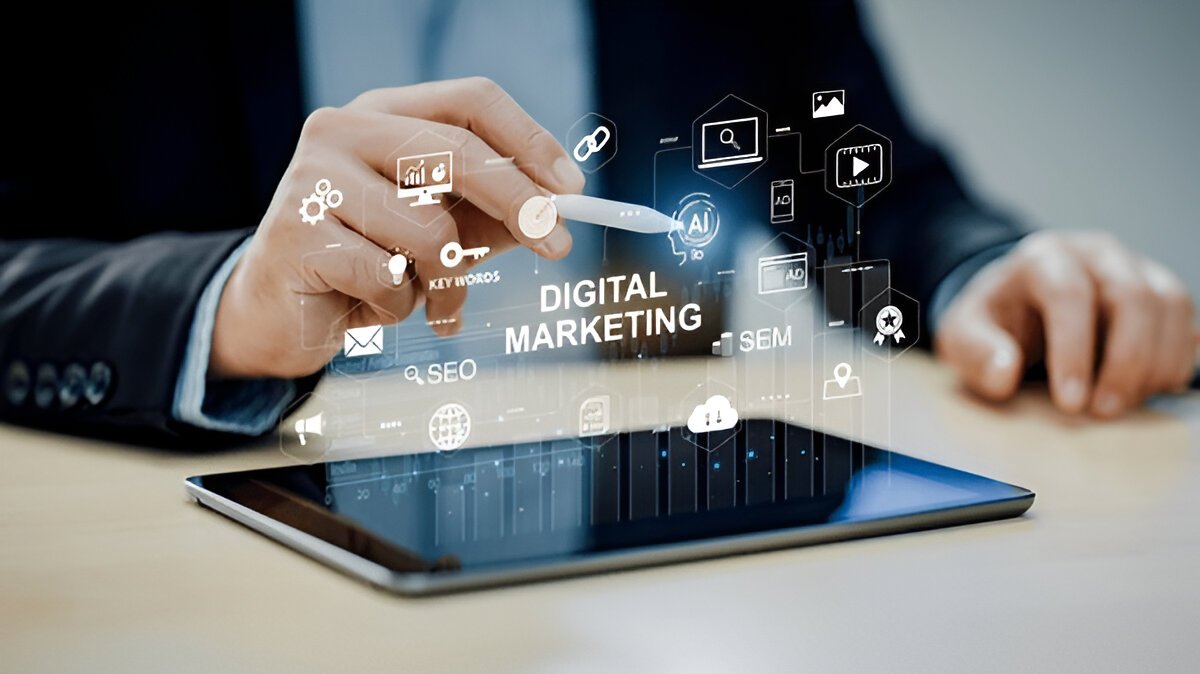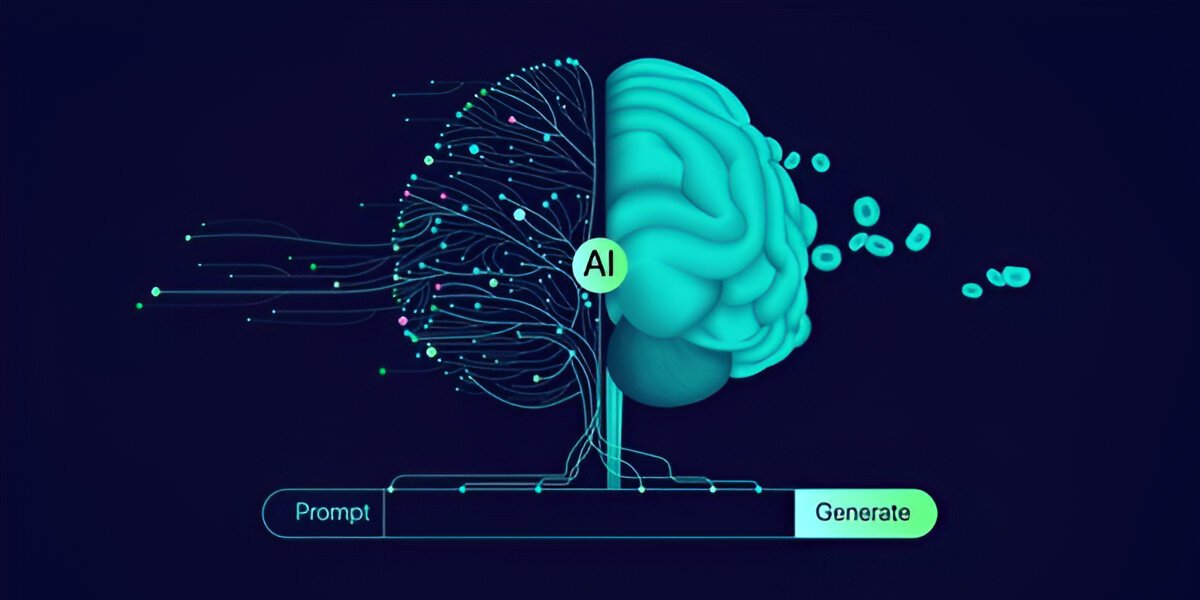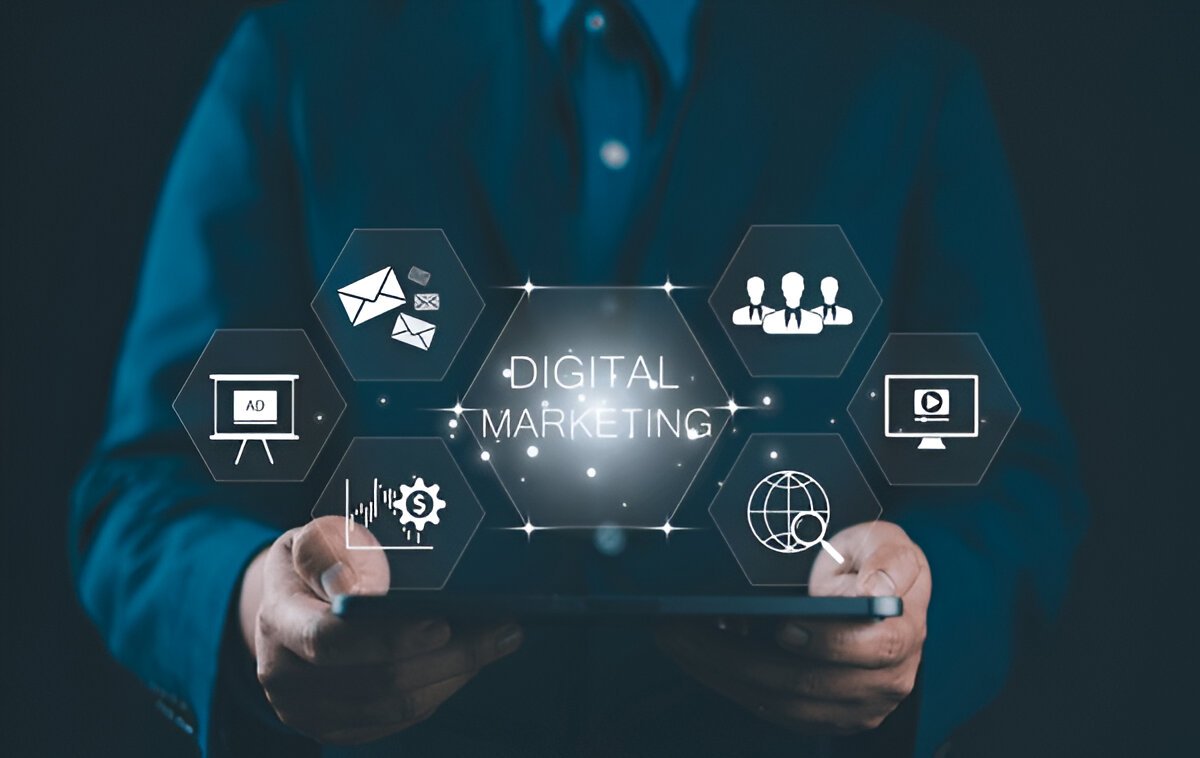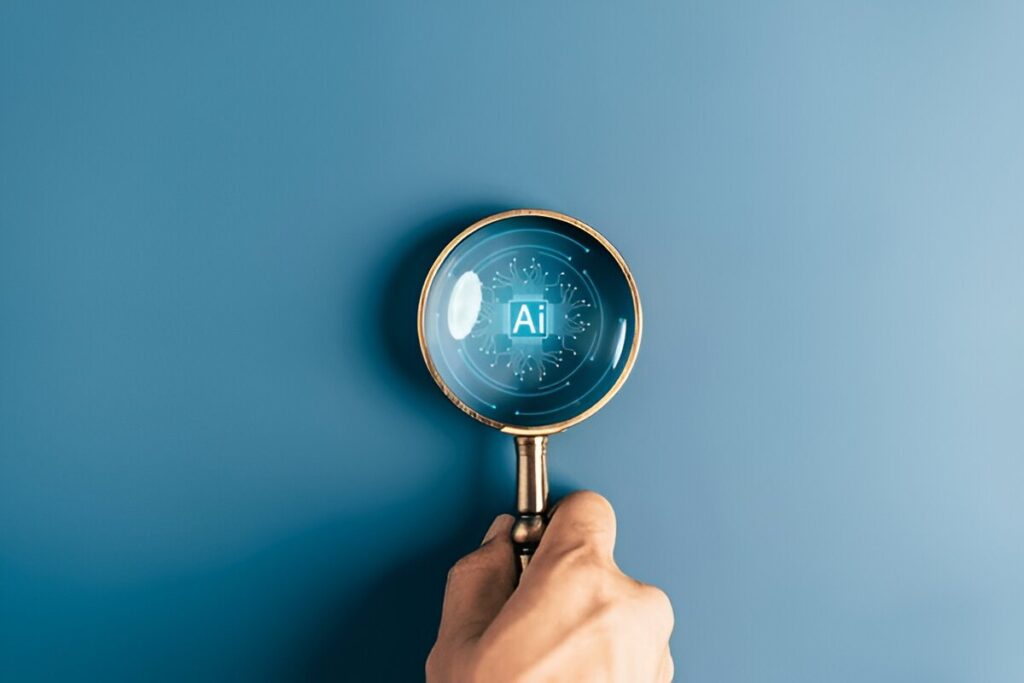What does AI mean in Digital Marketing?
Artificial Intelligence (AI) in digital marketing refers to using machine learning, natural language processing, generative models, predictive algorithms, and autonomous systems to enhance, automate, and personalize marketing efforts at scale. Rather than generic automation, AI learns from customer behavior, content performance, and channel analytics data and makes data‑driven decisions to improve ROI, customer experience, and operational efficiency. In short, AI systems don’t just do tasks—they learn how to do them better over time.
When AI is used in digital marketing, AI means using technologies and programs that are based on artificial intelligence to improve and make the most of different marketing efforts. This includes automating chores, making the experience of customers more unique, and getting more out of data to make campaigns run better and more efficiently.
AI is used in digital marketing to gain better business insights and automatically make marketing tasks and choices. It can collect data, process natural language, learn from examples, and run analytics.
AI is helpful because it can quickly help you understand how your customers act by collecting vast amounts of data.These can react to and customize customers’ needs based on what they do and like. AI can also change and improve over time with the help of new data and comments.With artificial intelligence, marketers can be more successful and tailor their messages to each customer. Customers get applicable content based on what they do on a website, in an ad, or in a branded message. But AI doesn’t take over people’s jobs and responsibilities! It is a tool that works with and improves those, but people are needed to use it properly.

The Rise of AI in Digital Marketing
A. What is AI in digital marketing?
- Definition: AI refers to ML, NLP, generative AI, predictive analytics, and autonomous “agentic AI” that automates goal-driven tasks.
- Difference from old tools: shifts from basic chatbots to intelligent agents capable of decisions, planning, and autonomy.
B. Why now?
- Significant adoption (>70% of CMOs investing >$10M/year) businessinsider.com.
- Adobe reports that 50% of executives see measurable ROI, and 65% view predictive analytics as a core growth driver.
- Industry momentum (Cannes, WPP, agencies)
Top AI Use Cases in Digital Marketing
1 Content Creation & SEO
- AI-powered writing tools quickly draft blog posts, product descriptions, and ad campaigns.
- Optimizes for Generative Engine Optimization (GEO)—the emerging practice of appearing in AI-powered SERPs en.wikipedia.org.
.2 Programmatic Advertising
- Automatically buys and places ads in real time using RTB and behavioral/contextual signals.
3 Smart Ad Creative
- Tools like Omneky automatically generate thousands of ad variants to test visuals and messaging en.wikipedia.org.
- Generative ads experiments perform rapid AI‑driven optimization.
4 Customer Journey & Chatbots
- AI chatbots manage 24/7 user interactions, answer FAQs, and qualify leads on autopilot.
- Use of agentic AI for personalized in-app experiences and virtual assistants
5 Lead Scoring & Nurturing
- Based on engagement data, AI evaluates which leads have the highest chance to convert.
- Automatically segment and nurture leads through personalized drip campaigns.
6 Predictive Analytics for Budgeting
- Forecast performance of campaigns, optimize spend across channels and reduce ad waste.
- Gartner cites predictive analytics and AI as fundamental for segmentation and personalization.
7 Customer Retention & Loyalty
- AI identifies churn risks and recommends re-engagement strategies.
- Personalized loyalty offers based on user history and behavior patterns.
8 Immersive Marketing (AR/VR)
- AI-powered AR experiences enhance engagement by visualizing products in real life.

AI Tools for Digital Marketing
There are many creative AI tools out there that help marketers do their jobs. ChatGPT may be the most well-known one.
In addition to creating content, they can also help with marketing through design, SEO, and automation.
These are some of the best AI tools you can get:
Writer is a highly rated tool for creating repeatable content. It also comes with an AI writing assistant.
Optimove is a customer data platform with marketing functions built on AI.
Zapier helps your business manage tasks by linking its apps and services.
ManyChat lets you connect with customers by using NLP to answer their questions on social networks like WhatsApp.
Surfer SEO is a cloud-based on-page optimization tool that checks your pages against those already ranking well on the SERPs.
Mailchimp uses AI to make email marketing more effective by predicting the best times to send and personalizing content. Perplexity is like ChatGPT, but it’s better for research because it uses web citations more clearly.

trends Reshaping the Future of Digital Marketing
1 Agentic AI
- Autonomous AI agents that plan campaigns end‑to‑end—from ideation to launch.
- LVMH, Google, and others are exploring personal-stylist AI agents and chain‑wide agent ecosystems.
2 Generative Engine Optimization (GEO)
- Optimizing content to be directly cited by GPT-powered systems, AI assistants, and SGE.
- Focus shifts from traditional SEO to securing featured snippets in AI-led search experiences.
3 AI in SERP & Zero‑Click Search
- Up to 50% drop in organic visits as AI summarizes answers in SERP
- Marketers must win prominent placement in AI results (SGE, chatbots, internal assistants).
4 Data‑First, Skills‑Second
- Effective AI integration depends on talent with prompt engineering and tool integration skills.
- Organizations hiring for human‑AI collaboration roles: data analysts, prompt engineers, and AI strategists.
5 Creativity + Analytics
- AI doesn’t replace creativity—it augments it.
- Independent agencies emphasize authentic storytelling and emotional resonance as AI tools handle execution.
6 Ethical AI & Trust
- Brands must avoid AI-washing—misleading claims about AI use en.wikipedia.org.
- Focus on data privacy, transparency, and responsible AI applications.
7 ROI-Driven Scaling
- Survey: 71% of CMOs investing >$10M/year in AI; measuring scalable ROI remains the top challenge.
8. The Future: What’s Next
- Agentic AI: Autonomous marketing agents setting and delivering campaign goals.
- Explainable AI tools: Platforms like SODA for transparent CTR predictions and decision logic.
- AI-free positioning: Brands leveraging human-only creatives as a unique advantage improvado.io.
- First-party data empowerment: AI + own data to navigate cookieless future.
Conclusion
- Recap: AI is reshaping digital marketing across strategy, operations, and customer experience.
- Emphasize balanced implementation—technology + human creativity, ethics, and governance.
- Call to action: Start AI pilots, invest in skills, optimize for generative SEO, and stay agile.
- Final thought: Brands that thoughtfully integrate AI will own the future of digital marketing.
.
